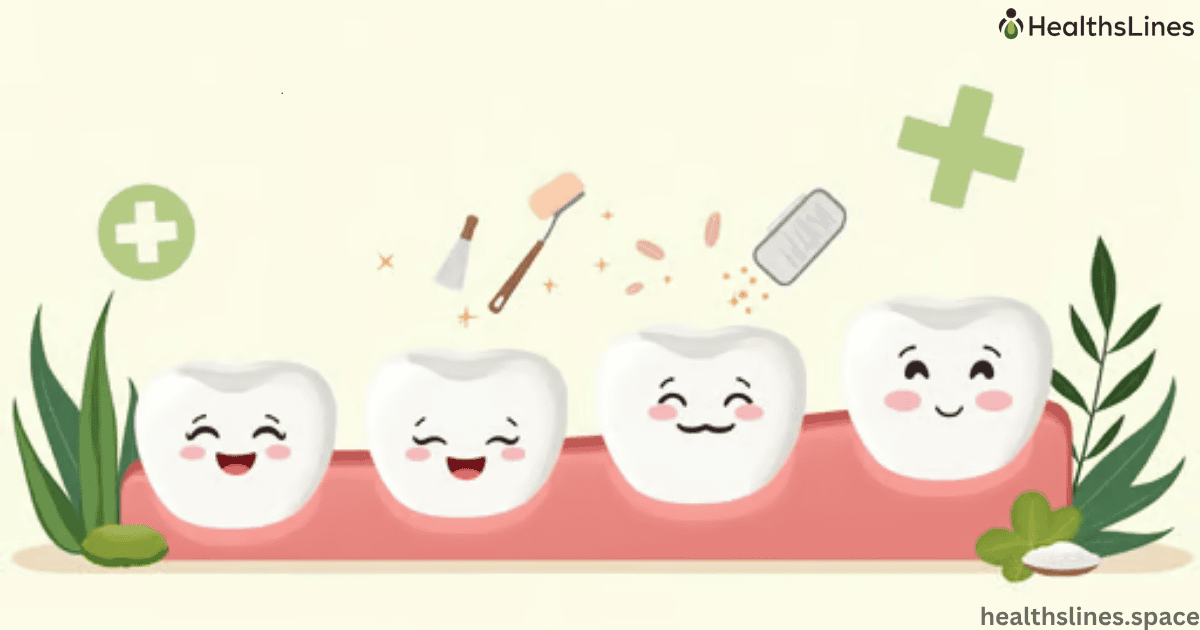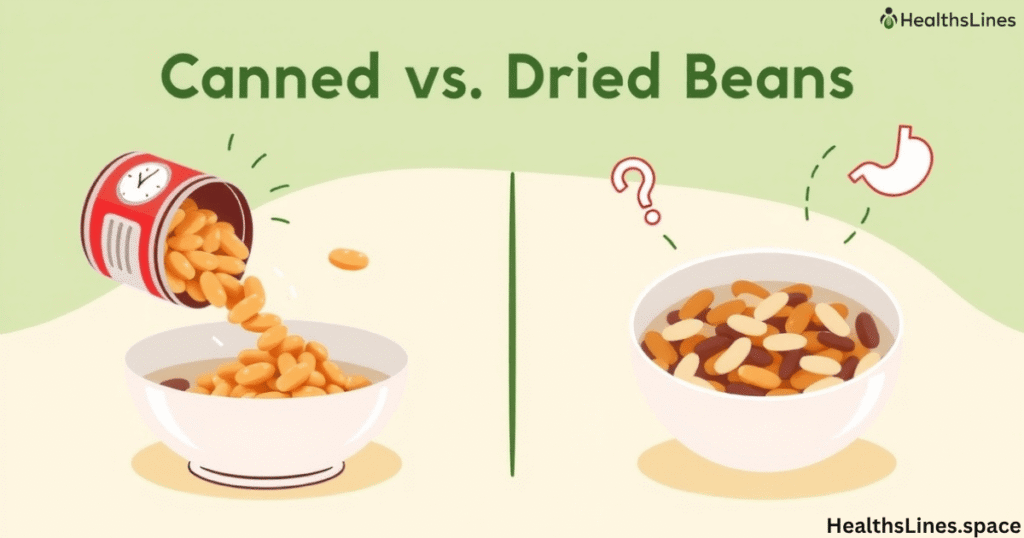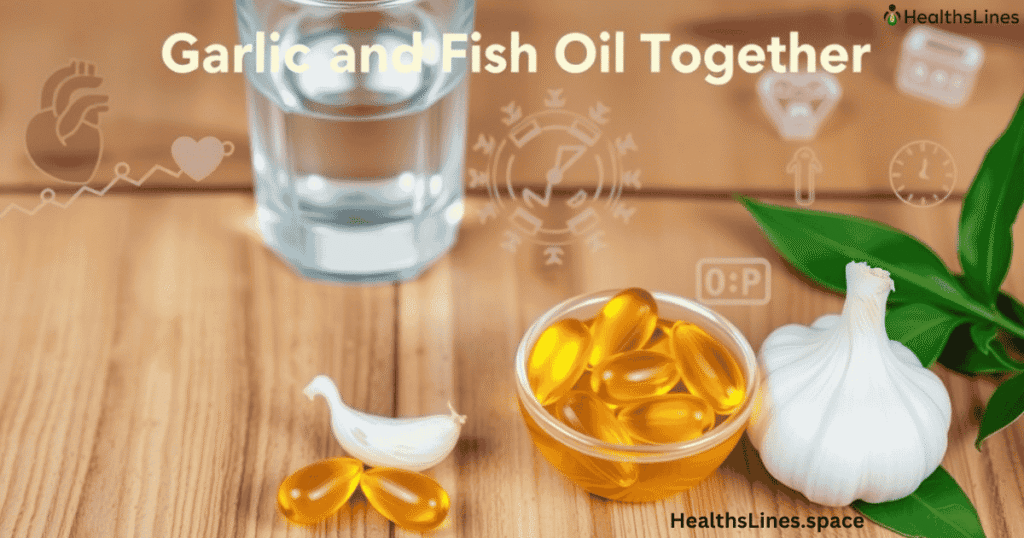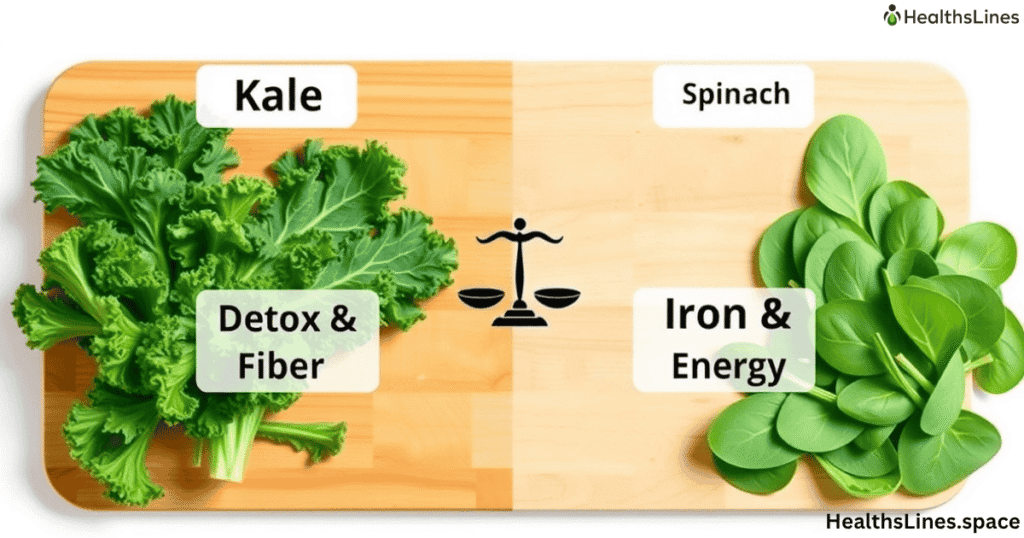Receding gums can cause serious dental problems if you don’t treat them early. When your gums pull away from your teeth, the roots get exposed. This can lead to pain, sensitivity, infections, and even tooth loss. Many people look for natural remedies for receding gums because they want to avoid surgery or chemical treatments. Thankfully, there are several proven natural treatments that can help soothe your gums and stop further damage.
This guide will explain the real causes of gum recession, how natural remedies help, and which options work best. You’ll also learn how to use these treatments safely and when to see a dentist. If you’re looking for easy, effective ways to improve your gum health naturally, this is for you.
What Causes Receding Gums?
Many people think brushing too hard is the only reason gums pull back, but that’s not true. Gum recession happens for many reasons. One of the most common causes is periodontal disease, which is an infection in your gums caused by bacteria. If plaque stays on your teeth too long, it hardens into tartar and causes your gums to get inflamed.
Other causes include poor oral hygiene, smoking, brushing with too much pressure, using a hard-bristled toothbrush, grinding your teeth, and even genetics. Hormonal changes and certain medications can also weaken your gums. That’s why using the right natural remedies can protect your gums and support healing from many of these triggers.
| Common Cause | How It Affects Your Gums |
| Poor Brushing Habits | Damages tissue and causes recession |
| Smoking | Reduces blood flow and healing |
| Gum Disease | Destroys gum and bone tissue |
| Hormonal Changes | Increases gum sensitivity |
| Teeth Grinding | Puts pressure on gums and teeth |
| Genetics | Some people are more prone to it |
17 Natural Remedies for Receding Gums
If your gums are receding, early treatment is essential. These natural remedies can help stop the damage and even support the gum tissue to heal. Let’s go through each one in detail so you can understand how they work and how to use them Natural Remedies for Receding Gums.
1. Oil Pulling with Coconut or Sesame Oil
Oil pulling is one of the oldest natural oral health techniques. It comes from Ayurvedic medicine and involves swishing oil in your mouth for 10–20 minutes. Coconut oil and sesame oil both have antibacterial properties. They help remove harmful bacteria that cause plaque and gum disease. A 2009 study published in the Indian Journal of Dental Research found that oil pulling reduced plaque and gingivitis significantly in just two weeks. You can start by swishing one tablespoon of oil daily before brushing your teeth.
2. Salt Water Rinse
Using a salt water rinse is one of the simplest ways to calm inflamed gums. Salt is a natural disinfectant. It reduces swelling, fights bacteria, and speeds up healing. Mix one teaspoon of salt in warm water, rinse for 30 seconds, and spit it out. Doing this two or three times daily can make a real difference. But be careful not to overuse it as too much salt can dry out your mouth.
3. Eucalyptus Oil (Always Diluted)
Eucalyptus oil is packed with anti-inflammatory and antimicrobial properties. It helps reduce swelling in the gums and kills bacteria in your mouth. You must always dilute it with a carrier oil like olive or coconut oil. Never use it directly. Mix one or two drops of eucalyptus oil with one tablespoon of carrier oil and gently rub it on your gums.
4. Aloe Vera Gel
Pure aloe vera gel is excellent for gum health. It has soothing, anti-inflammatory effects and helps in tissue regeneration. One study in the Journal of Indian Society of Periodontology showed that applying aloe vera gel directly to affected areas can significantly improve gum health. Use only food-grade aloe vera gel, not juice or skincare gel.
5. Green Tea
Drinking green tea daily can protect your gums from damage. Green tea is rich in antioxidants, especially catechins, which fight the bacteria that cause gum disease. A study from Japan showed that people who drank green tea had better gum health and less bleeding. One or two cups a day can help reduce inflammation and support healing.
6. Peppermint Essential Oil
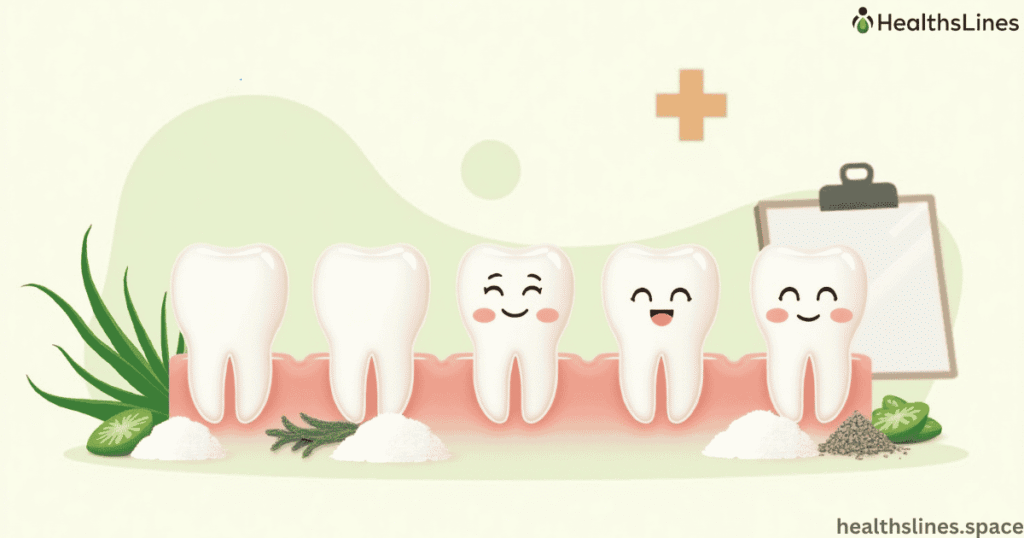
Peppermint oil isn’t just for fresh breath. It’s a powerful antibacterial and can reduce plaque buildup. To use it safely, mix one drop with water and use it as a mouth rinse. It helps soothe irritated gums and prevent further infections.
7. Hydrogen Peroxide (3% Solution)
Hydrogen peroxide fights bacteria and helps heal bleeding gums. You can mix equal parts of 3% hydrogen peroxide with water and swish it in your mouth for 30 seconds. Do not swallow. Use it only two or three times a week, as overuse may irritate your gums.
8. Tea Tree Oil
Like eucalyptus, tea tree oil fights oral bacteria. It’s especially useful for people with chronic gum inflammation. Add one drop to your toothbrush or dilute with coconut oil for a gentle rinse. A clinical trial published in Australian Dental Journal showed tea tree oil significantly reduced bleeding gums.
9. Turmeric Gel or Paste
Turmeric contains curcumin, a strong anti-inflammatory compound. Studies show it reduces plaque and promotes healthier gums. You can make a paste by mixing turmeric powder with water and apply it to your gums. Leave it for 10 minutes and rinse. Do this twice a day for best results.
10. Thyme Essential Oil
Thyme oil improves oral immunity and fights harmful germs in the mouth. It must be diluted with a carrier oil before applying. Thyme stimulates blood flow to the gums, which may help them heal faster.
11. Omega-3 Fatty Acids
Omega-3s, found in flaxseed, chia seeds, and fish oil, reduce inflammation and improve tissue healing. One clinical study found that people taking omega-3 supplements had less gum bleeding and better attachment between teeth and gums. You can take supplements or add more omega-3 foods to your meals.
12. Septilin
Septilin is a herbal supplement that combines several natural ingredients like licorice and guggul. Research shows it boosts immunity and helps the body fight infections. It’s widely used in Ayurvedic medicine for treating gum issues. Always follow the dosage on the label or ask a professional.
13. Brushing with a Soft-Bristled Brush
Brushing too hard can damage your gums. Switch to a soft-bristled brush and use gentle circular motions. This method helps clean your teeth without scraping away your gum tissue. Use fluoride-free herbal toothpaste with natural ingredients like neem or clove for extra protection.
14. Flossing (Gentle and Regular)
Flossing helps remove food and plaque between your teeth. But if you do it the wrong way, you could hurt your gums. Use a gentle back-and-forth motion without snapping the floss into the gums. Doing this daily can prevent gum pockets from deepening.
15. Lemon Essential Oil
Lemon oil can help stimulate blood flow and reduce bacteria. It’s refreshing and has antiseptic effects. But don’t use it too often because it’s acidic and can wear down enamel. Mix one drop in a carrier oil and rub on your gums once a week.
16. Clove Oil
Clove oil is a well-known remedy for toothaches, but it also helps heal receding gums. It reduces pain and fights germs. Apply one drop directly to sore gums or use it in a rinse. Clove has been used for centuries in oral care.
17. Myrrh Tincture or Powder
Myrrh has powerful healing properties. It was used in ancient times to treat oral infections. You can make a paste by mixing myrrh powder with water or buy a tincture and apply it directly to the gums. It helps tighten gum tissue and reduce inflammation.
| Natural Remedy | Use Frequency | Main Benefit |
| Coconut Oil Pulling | Daily | Removes toxins, reduces plaque |
| Green Tea | 1-2 cups daily | Antioxidant, reduces inflammation |
| Septilin | As directed | Herbal immune support |
| Clove Oil | Spot apply as needed | Pain relief and antibacterial |
| Aloe Vera | 1–2x daily | Heals and soothes gums |
How to Use Remedies Safely
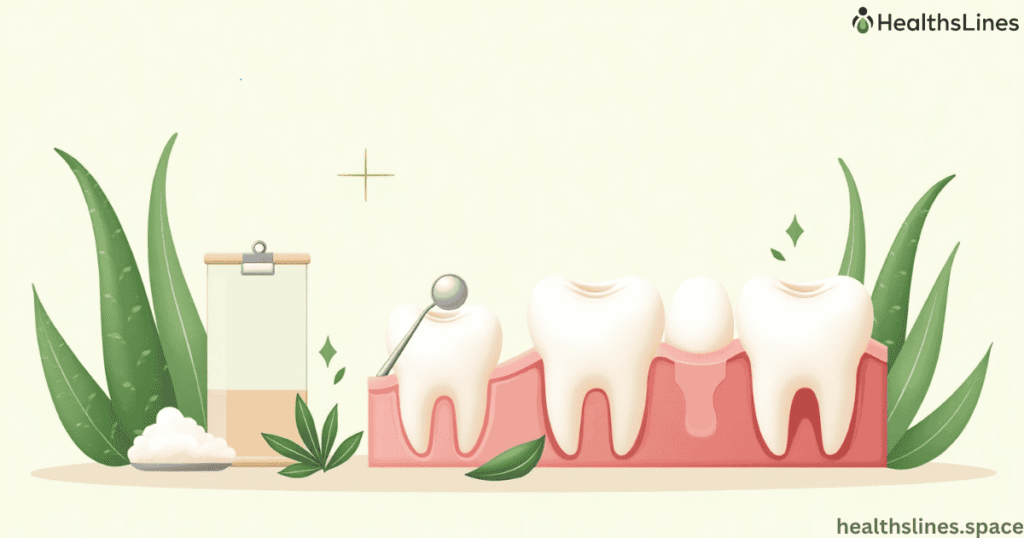
You should never try every remedy at once. Instead, pick two or three that suit your needs and stick with them for at least two weeks. For example, try oil pulling in the morning, green tea after lunch, and aloe vera gel before bed. Always use pure, food-grade oils and herbs. If you’re allergic to anything, check the label before trying it.
Don’t use essential oils without diluting them, as they can burn or irritate your gums. If your symptoms get worse, stop and talk to a professional. These remedies are for mild to moderate cases. If your gum recession is severe, you may need advanced treatment Natural Remedies for Receding Gums.
When to See a Dentist
If your gums continue to recede or you feel pain while eating, you should see a dentist. Natural remedies can support healing but cannot reverse severe damage. Treatments like deep cleaning, scaling, or even gum grafts may be necessary in advanced cases.
Bleeding gums, loose teeth, or deep gum pockets are serious signs. The earlier you treat it, the better your results will be. A professional can also help you build a plan that includes both natural and medical treatments.
Final Thoughts
Receding gums are not something you should ignore. They can lead to tooth loss, bad breath, and painful infections. But the good news is that many natural remedies for receding gums really do work when used consistently. Simple steps like oil pulling, drinking green tea, and using aloe vera can make a big difference in your gum health.
Combine these remedies with proper brushing, flossing, and healthy eating. Avoid smoking, reduce sugar, and visit your dentist regularly. Your gums don’t grow back, but with care, you can stop the damage and even strengthen the tissue that remains. Stick with what works. Be patient. And most of all, keep your mouth clean and healthy using the power of nature.
